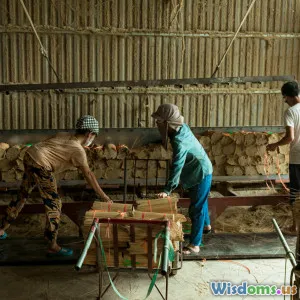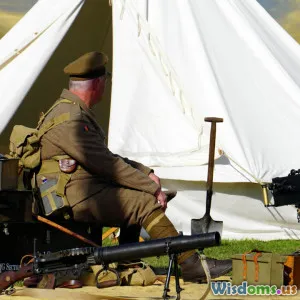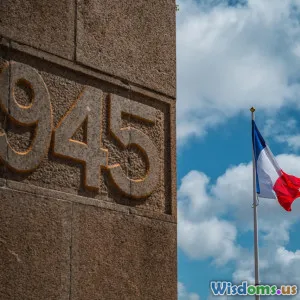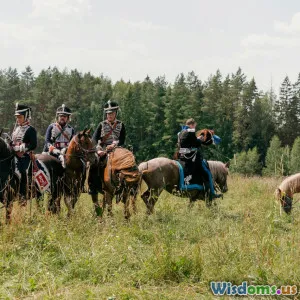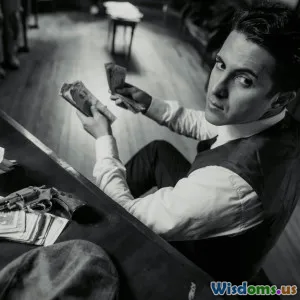
Decoding the Influence of Secret Organizations
6 min read Explore how secret organizations shape societal norms and power dynamics worldwide. (0 Reviews)
Decoding the Influence of Secret Organizations
Throughout history, secret organizations have played pivotal roles in shaping societal norms, cultural practices, and even global politics. While often shrouded in mystery, their influence can be profound and far-reaching. In this article, we will explore the mechanisms by which these organizations operate, their historical significance, and the impact they have on our everyday lives.
Understanding Secret Organizations
Secret organizations, often referred to as societies or guilds, typically operate with a level of confidentiality that sets them apart from other organizations. Members usually share a common goal, ideology, or interest, and often participate in rituals or practices that reinforce their bond and commitment to the group.
Some well-known examples of such organizations include:
- Freemasons: A fraternal organization that traces its origins back to the late 16th century, the Freemasons have been influential in many political and cultural movements.
- Skull and Bones: An elite secret society at Yale University, known for its influential alumni who have held significant positions in government and business.
- The Illuminati: Often considered a conspiracy theory, the Illuminati is believed to be a powerful group manipulating global events from behind the scenes.
Mechanisms of Influence
1. Networking and Connections
One of the primary ways secret organizations exert influence is through networking. Members often include influential figures in politics, business, academia, and the arts, allowing them to share resources, information, and connections that can significantly impact society. For instance, the tight-knit circles of the Freemasons have historically included presidents, military leaders, and captains of industry, facilitating collaborative efforts in shaping public policy and cultural landscapes.
2. Rituals and Symbolism
Rituals and symbolism play a crucial role in reinforcing the values and beliefs of secret organizations. These elements create a sense of belonging and commitment among members while serving to communicate their ideals to the outside world. For example, the use of specific symbols, like the square and compass of the Freemasons, can carry significant cultural weight, influencing art, architecture, and even political movements.
3. Control of Information
Secret organizations often control the dissemination of information, which can lead to significant power over public perception and societal norms. By curating the narrative around certain issues, they can sway opinions and mobilize support for their causes. This method is evident in various lobbying efforts where organizations work behind the scenes to influence legislation that aligns with their interests.
Historical Significance
Throughout history, secret organizations have been associated with both positive and negative outcomes. For instance, the Freemasons contributed to the Enlightenment, promoting ideas of liberty and equality, which laid the groundwork for modern democracies. Conversely, other groups, like the Ku Klux Klan, have perpetuated hate and division, showing how the influence of secret organizations can vary widely based on their objectives.
Key Historical Events Influenced by Secret Societies:
- American Revolution: The Sons of Liberty, a group of American patriots, used secretive methods to organize resistance against British rule, ultimately leading to the revolution.
- French Revolution: Various secret societies, including the Jacobins, played a significant role in fostering revolutionary fervor, advocating for social change and equality.
Modern-Day Influence
In contemporary society, secret organizations continue to wield significant influence, often adapting to the changing political and social landscape. The rise of technology and social media has allowed these groups to operate more covertly while expanding their reach. For example, online platforms have enabled the rapid spread of ideologies and organized movements, often resembling the tactics of historical secret societies.
The Role of Social Media
Today, many secretive groups leverage social media to recruit members, disseminate information, and organize events. This modern approach allows them to maintain anonymity while cultivating a sense of community among followers. However, it also raises concerns about the spread of misinformation and radical ideologies, illustrating the dual-edged nature of their influence.
Conclusion
Secret organizations have historically been influential in shaping cultural norms and societal structures. By understanding their mechanisms of influence, we can better comprehend the complexities of power dynamics within our societies. As these organizations continue to evolve, it is crucial to remain vigilant and informed about their potential impact on our lives. Whether viewed as architects of progress or purveyors of secrecy, their role in history and modern society is undeniable, urging us to decode their influence in our ever-changing world.
Rate the Post
User Reviews
Popular Posts

















